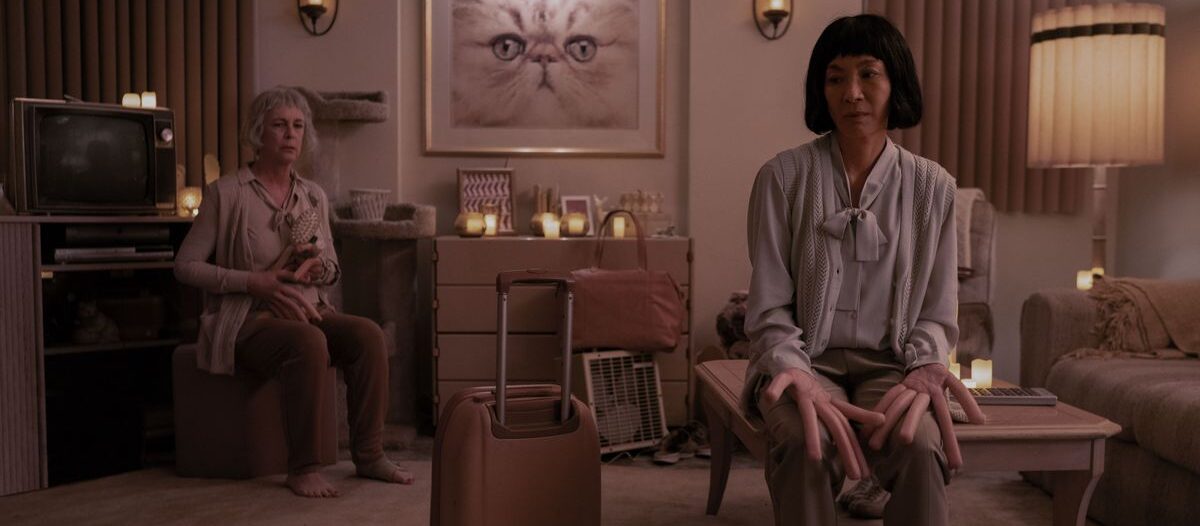
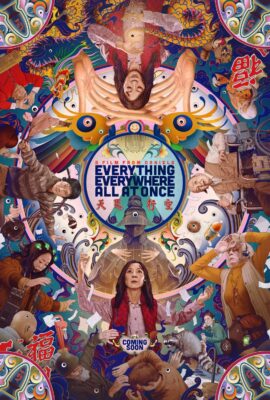
“Right is a small box invented by people who are afraid.”
The widely overpraised Everything Everywhere All at Once, from filmmaking duo Daniel Kwan and Daniel Scheinert, electrified social media a few years ago. That makes perfect sense considering its primary objective is to revel in the sensation of media supersaturation, the experience of being terminally online and bombarded with an endless stream of disparate inputs. It begins with a wonderfully designed, intricate look into the home life of an overworked Asian-American family (Michelle Yeoh, Ke Huy Quan, Stephanie Hsu, James Hong) that can’t quite manage to keep the records straight for the laundromat they own and operate. They’re given one last chance to correctly organize and categorize the jumble of invoices and receipts spread across their dining room table before the IRS inspector (Jamie Lee Curtis) shuts them down and seizes their personal property as collateral. This initial burst of exposition assaults us with the hyperactive, precision chaos of the Safdie brothers’ Uncut Gems, and then the film swiftly branches out to include a “multiverse” which is in need of saving.
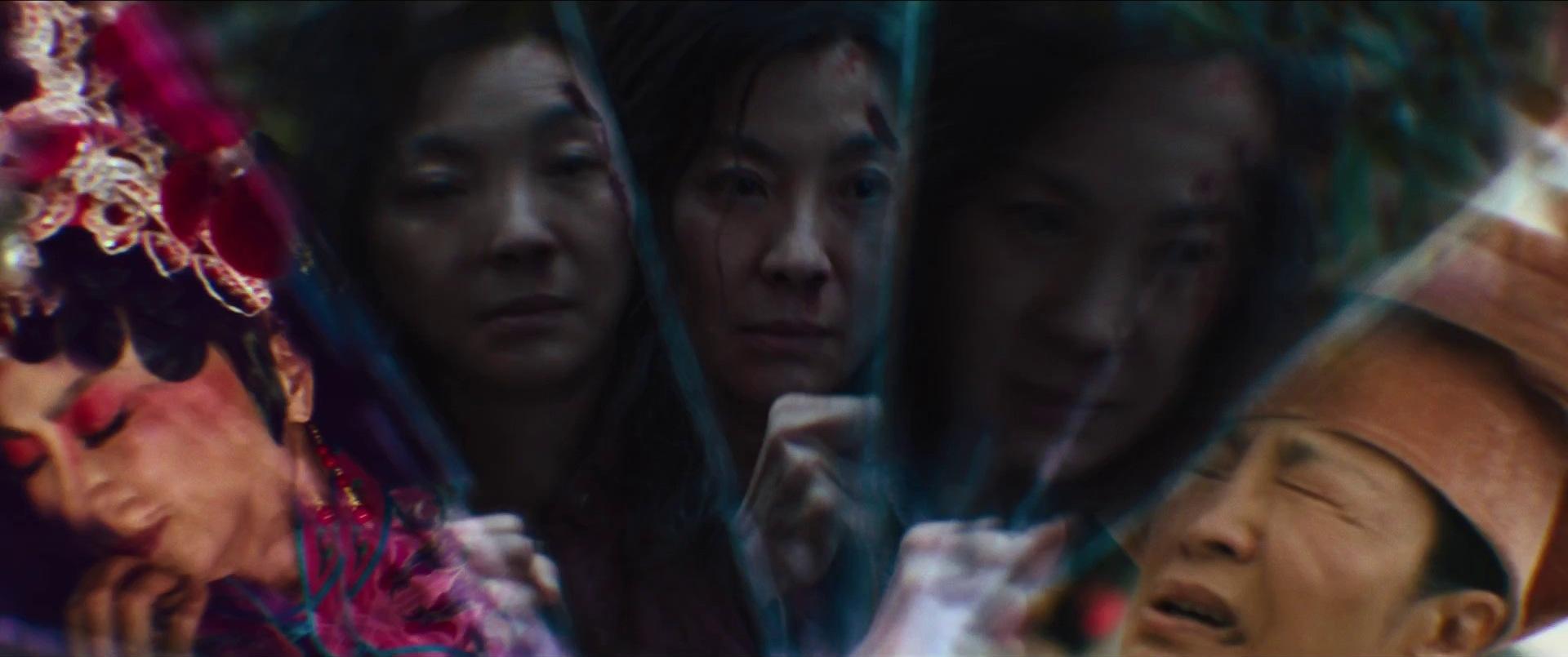
Borrowing liberally from The Matrix, it works out an excessively complex but wishy-washy set of rules that govern its parallel universes, positing an infinite number of alternate life paths from which our heroine (Yeoh) can borrow skills and insights that allow her character to go toe-to-toe with her nemesis: her own daughter (Hsu), who, as it turns out, isn’t her enemy, but a poorly raised child afflicted with suicidal nihilism. The screenplay and film style align to deliver a fussy barrage of meme-ready randomness and cluttered fight scenes, with costumes and makeup and lighting and setting all shifting on a shot-by-shot basis, never allowing the viewer to anchor themselves to much of anything.
It holds itself out as very clever, funny, and irreverent—there is a universe where Yeoh and Curtis are lovers with hotdogs for fingers, another one where Yeoh and Hsu are rocks, an extended riff on Ratatouille involving a raccoon, and the black hole that threatens to consume reality as we know it is an everything bagel—but it is merely low-grade surrealism in the mold of Buñuel smeared over with a tone of smug and quippy self-loathing with flashing lights and fistfights to distract us. Give me sliced eyeballs and ant-infested hands over dildo fights and thugs with phallic objects dangling from their anuses any day of the week.
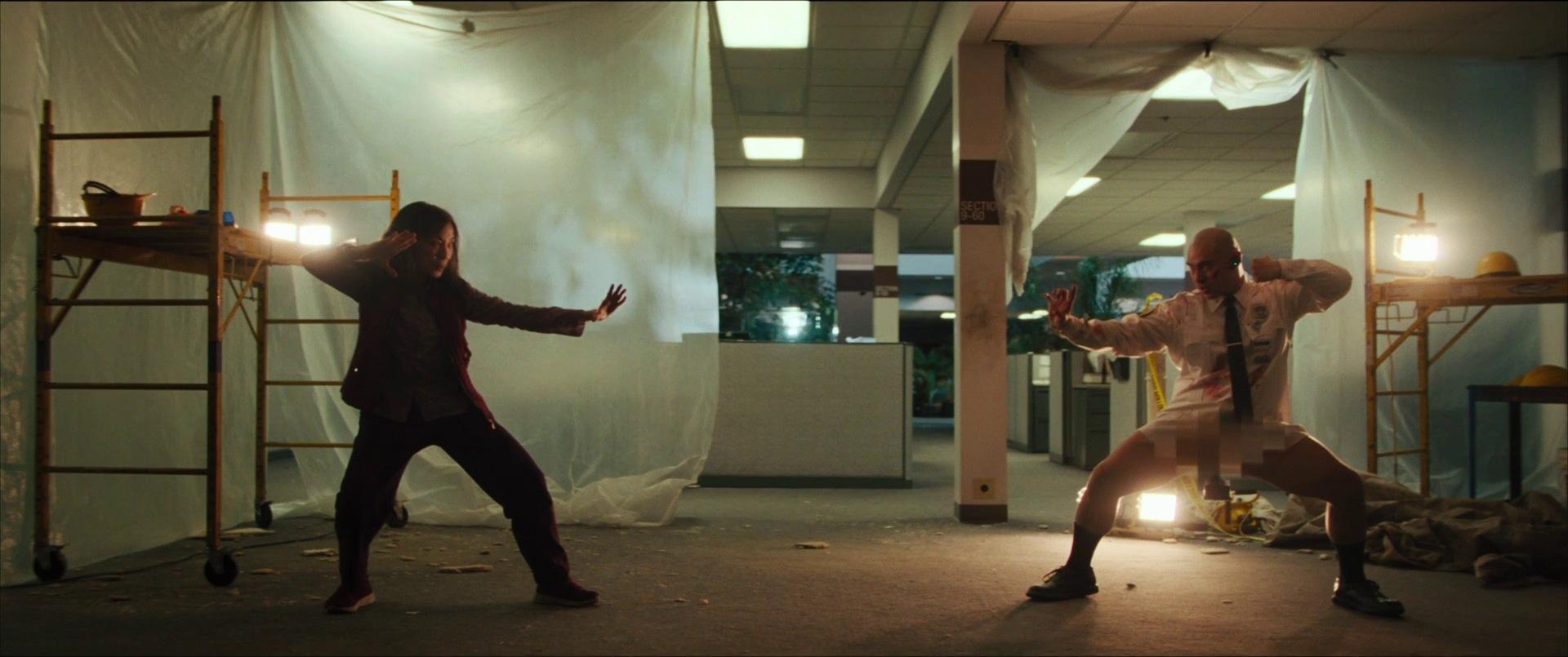
Moreover, the film’s supposed trauma-healing qualities feel quite underpowered due to the poor relational dynamics that form the basis of its “generational trauma.” Yeoh, as the mother and the film’s stabilizing center, is burdened with the quest for self-actualization as well as the need to patch things up with her husband and accept her daughter for who she is. At no point is the daughter given an opportunity to reflect on why she desires her mother’s approval of her lifestyle or why she isn’t willing to stop shouting and pouting and might actually improve her situation by speaking frankly with her parents about her desire to be understood. I struggled with the idea that my parents didn’t understand the one-of-a-kind person that I was and that I wasn’t going to conform to all their vicarious fantasies as much as the next person, but not being fully understood by your parents is not actually trauma, is it? That’s just life, man. Cultivating your own life path is sort of like a right of passage of being an actual adult who can think and act for themselves, but this film undermines that idea with its comfortable, evasive, art-as-therapy reconciliation, which includes an ill-fitting, mishandled reconnection of the husband and wife (which Kieran McLean dissects in his excellent review).
Obviously, the film’s genre is fantasy, but it hangs its hat on its emotional authenticity—unfortunately, it turns out that’s fantasy as well, an infantilizing distortion of reality that approaches the Big Questions with the hubris of a hamster trying to tackle Derrick Henry, that seems calibrated to affirm perpetual childhood and ignore the existence of real evils. In the world of Everything Everywhere All at Once, no one is a sinner in need of redemption, they’re just misunderstood or traumatized. All desires are good and healthy. Being nice is the most important thing (not kind, as one rock says to another, but nice). Positive thinking will manifest solutions to life’s hardest problems. A few platitudes will heal all psychic wounds. Everything is meaningless, there is no right or wrong—unless you accept that supposed fact. Then you can make your own rules and morals.
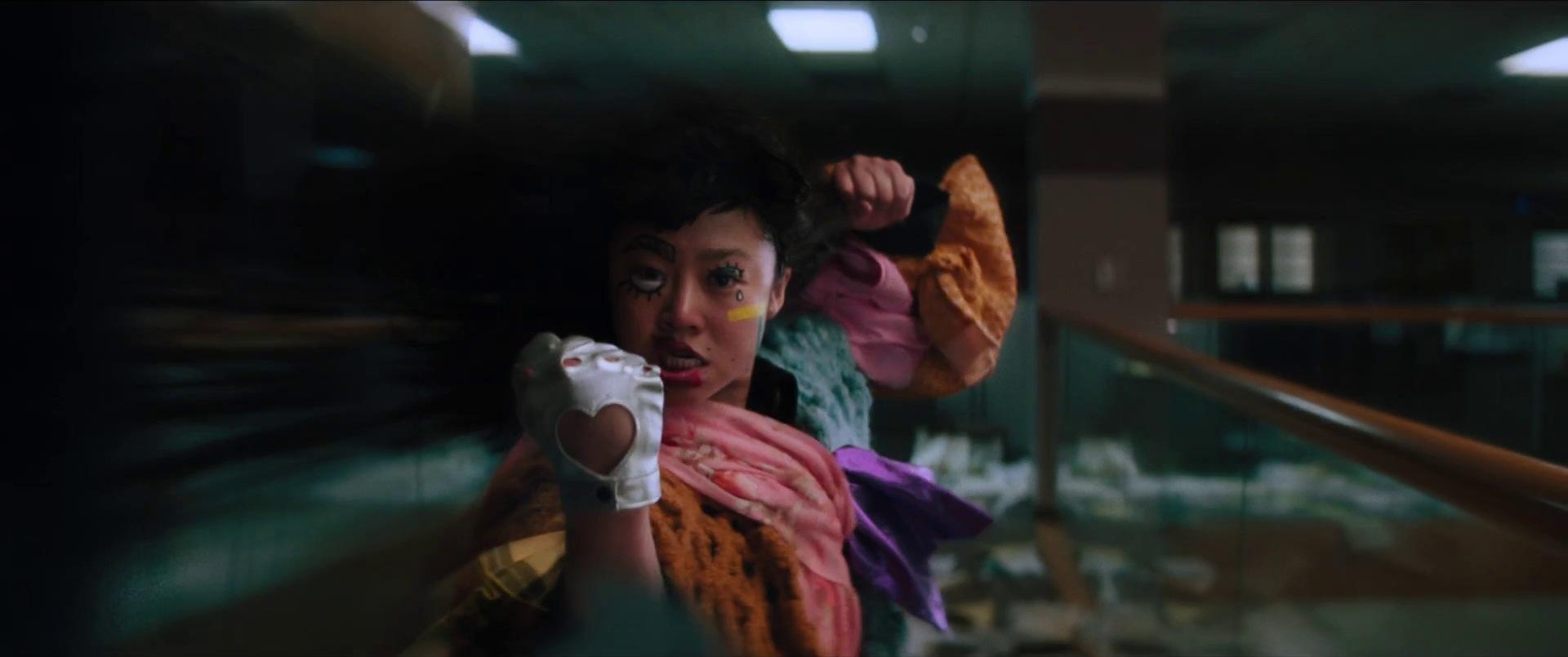
Based on its reception, one had hoped that it reigned in some of the less palatable tendencies of Marvel and company and reconstituted the multiverse concept as something meaningful. Instead, it embraced the worst aspects of the style of filmmaking and reduced the branching universes idea down to a banal conceit to justify a maximalist style and solipsistic affirmations and a celebration of moral degradation. Inexplicably, to cap off this deranged, patronizing, thematically scatterbrained, emotionally juvenile, ideologically barren assault, in which “the less sense it makes, the better,” that has squandered its emotional momentum for the sake of its junior high humor and glitzy action, the filmmakers try to give a sermon on morals and meaning—perhaps the worst possible way this well-acted and slickly polished piece of ice cold, hyper-postmodern blather could have ended.